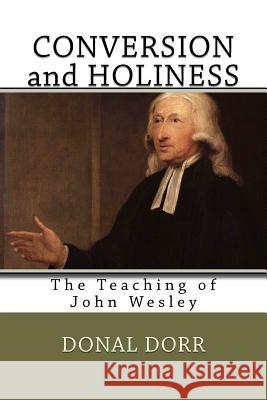Conversion and Holiness: The Teaching of John Wesley » książka
Conversion and Holiness: The Teaching of John Wesley
ISBN-13: 9781475296402 / Angielski / Miękka / 2012 / 220 str.
This study focuses on conversion and holiness in the teaching of John Wesley, because his contribution to the understanding of the Christian faith and to the life of the Church was made primarily through his teaching and preaching on these topics. These are the two areas where Wesley's theology is distinctive and at times controversial. The book contains twenty-four relatively short chapters, each devoted to one specific topic. The first chapter of the book gives a fairly short account of Wesley's spiritual journey in order to provide a background for the remaining chapters. Chapters 2 to 15 are devoted to the central topics in Wesley's teaching-topics to which he devoted most of his time and energy. These include The Corruption of the World, Salvation by Grace Alone, Faith, Witness of the Spirit, Regeneration, Holiness, Good Works by the Christian, Sin in the Christian, and Entire Sanctification. Chapters 16 to 21 deal with topics which were not normally the main subject of Wesley's preaching, but which formed part of the background to his teaching and on which, when necessary, he expressed definite views. These topics include Atonement, Prevenient Grace, Good Works before Conversion, Wesley's Arminianism, and Baptism. In all of the above chapters the author offers a detailed analysis of the teaching of Wesley, supported by a very large number of references to his many writings. These references are given in footnotes rather than endnotes so that readers can have easy access to them. The author also gives very many references to the views of Wesleyan scholars of past and present. However, these references are confined to the footnotes, in order to ensure that the main text is based entirely on the teaching of Wesley himself. The final section of the book contains three chapters which offer the author's own reflections on the Wesley legacy. He focuses on three major themes in Wesleyan theology-sola gratia (grace alone), sanctification, and assurance. He suggests that Wesley's teaching on these issues is of enduring value and are particularly relevant for Christians today. A particularly interesting point is the fact that Wesley's understanding of "sola gratia" provides a solid basis for the recent official and historic agreement between the Methodist, Lutheran, and Roman Catholic Churches on this issue which had been the central point of divergence at the time of the Reformation. A further point of interest is the author's emphasis on the importance of Wesley's teaching on the Witness of the Spirit. He suggests that this emphasis on immediate religious experience is an important affirmation of a key aspect of the Christian faith-one which Christian leaders and scholars have often failed to emphasize. He suggests that this crucial Wesleyan theme finds echoes in certain recent strands in various Christian Churches, particularly in charismatic renewal and Ignatian discernment.
Zawartość książki może nie spełniać oczekiwań – reklamacje nie obejmują treści, która mogła nie być redakcyjnie ani merytorycznie opracowana.











